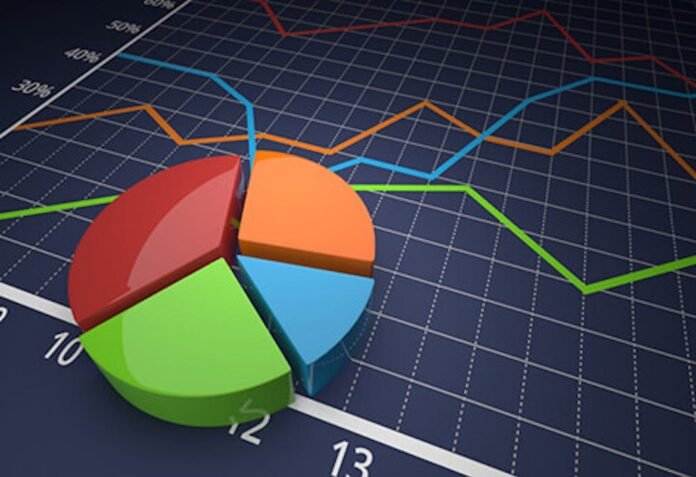Here’s a clear and concise breakdown of key concepts and common questions Australians are asking about markets, shares, the falling Australian dollar, and what all this has to do with recessions and global economic turmoil — especially in the wake of President Donald Trump’s controversial “Liberation Day” tariffs.
What Is the Stock Market?
The stock market is essentially a marketplace where shares — pieces of ownership in companies — are bought and sold. Publicly listed companies, like Qantas or BHP, allow investors to own parts of their business through shares (also called stocks). If the company does well, its share price rises. If it struggles — or if there’s bad economic news — investors may sell, pushing the price down.
READ MORE: ASX 200 Suffers Worst One-Day Fall in Five Years as Trump Tariffs Trigger Market Rout
Stock markets are driven by confidence. If many investors feel uncertain or pessimistic, they might sell shares quickly, leading to sharp price drops across the board — a scenario we’ve seen recently following Trump’s tariff announcements.
What Is the ASX?
The ASX (Australian Securities Exchange) is the main marketplace for buying and selling shares in Australian companies. It includes big names like Commonwealth Bank, Rio Tinto and Telstra.
Performance is tracked using indices:
- ASX 200: top 200 listed companies.
- All Ordinaries: top 500.
Over 2,000 companies are listed on the ASX, and changes in their prices impact the retirement savings (superannuation) of millions of Australians.
What Is the Dow Jones?
The Dow Jones Industrial Average is one of three major US stock indices. It tracks the performance of 30 significant American companies, including Boeing, Coca-Cola and Apple.
Other important US indices include:
- S&P 500: tracks 500 major US companies.
- Nasdaq Composite: tracks mostly tech companies (like Google, Apple, Amazon, and Tesla).
These indexes help gauge how the broader US economy and stock market are performing.
Why Is the Australian Dollar So Low?
The Australian dollar (AUD) fell below 60 US cents for the first time since the pandemic. That’s a big deal.
What’s causing it?
- Investors fear a global recession due to Trump’s new tariffs, leading to panic selling.
- The AUD is considered a “risk-sensitive currency” — when global markets fear instability, it weakens.
- The AUD is also closely tied to China’s economy, so when China is impacted, the Aussie dollar often drops.
Impacts of a low AUD:
- More expensive international travel
- Higher costs for imported goods
- Superannuation accounts may take a hit
What Is a Bear Market?
A bear market is when stock prices fall 20% or more from recent highs and stay down for an extended period.
- Think of a bear swiping downward — a falling market.
- The opposite is a bull market — prices rising strongly (like a charging bull).
- On average, bear markets last 13 months, and it can take 27 months to recover.
The current situation is approaching bear market territory, with major indices like the S&P 500 nearly 18% down from recent highs.
Has the Stock Market Crashed?
Not quite — but it’s close.
A stock market crash refers to a sudden, sharp drop in stock prices, often triggered by panic, a major global event, or economic shocks. Historic examples include:
- 1929 crash (Great Depression)
- 1987 Black Monday
- 2008 Global Financial Crisis
Currently, the market is in a sharp correction, but not yet a full-blown crash. Continued panic selling, however, could push it over the edge.
What Is a Recession?
A recession is when a country’s economy shrinks over two consecutive quarters (six months) — typically measured by Gross Domestic Product (GDP).
During a recession:
- Businesses slow hiring or cut jobs
- Consumer spending drops
- Government revenue decreases
- Confidence falls
Currently:
- Australia is not in a recession, though it recently experienced a per capita recession — economic growth didn’t keep up with population growth.
- The US is also not officially in recession, but the odds are increasing. Investment bank Goldman Sachs now puts the risk of a US recession at 45%, up from 20% just weeks ago.
What Does This Mean for Superannuation and Investors?
Around half of Australians’ superannuation is invested in local and global stocks. So when markets tumble, super balances drop.
But experts say don’t panic:
- Markets are volatile and often bounce back
- Long-term investments (like super) are built to weather downturns
- Avoid knee-jerk reactions like pulling your money out — that can lock in losses
Summary: Key Takeaways
- Trump’s tariffs triggered global market panic, including in Australia.
- The ASX dropped over 4%, its worst fall in five years, wiping out $100 billion.
- The Australian dollar fell below 60 US cents, making overseas goods and travel more expensive.
- The stock market isn’t in full crash mode, but risks of recession — especially in the US — are rising.
- Bear markets are long-term declines, and we may be entering one.
- Superannuation accounts are feeling the hit, but financial advisors urge calm and long-term thinking.
What Should You Do Now?
- Stay informed, not alarmed.
- Avoid impulsive investment decisions.
- Consider speaking to a financial advisor if you’re unsure.
- Remember: market downturns are part of the economic cycle. Patience is key.
Got more questions about the markets, your super, or global economic shifts? Just ask — it’s a complex world, but the more we understand it, the better we can navigate it.
